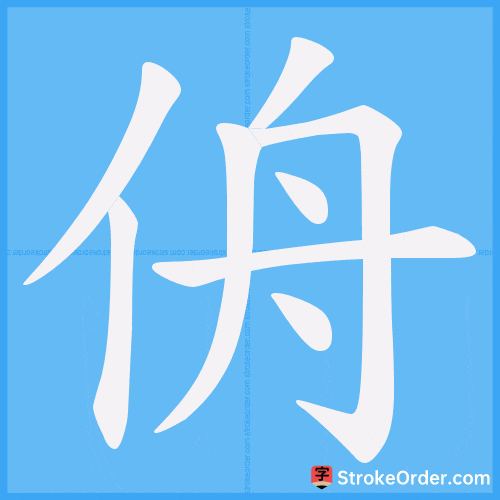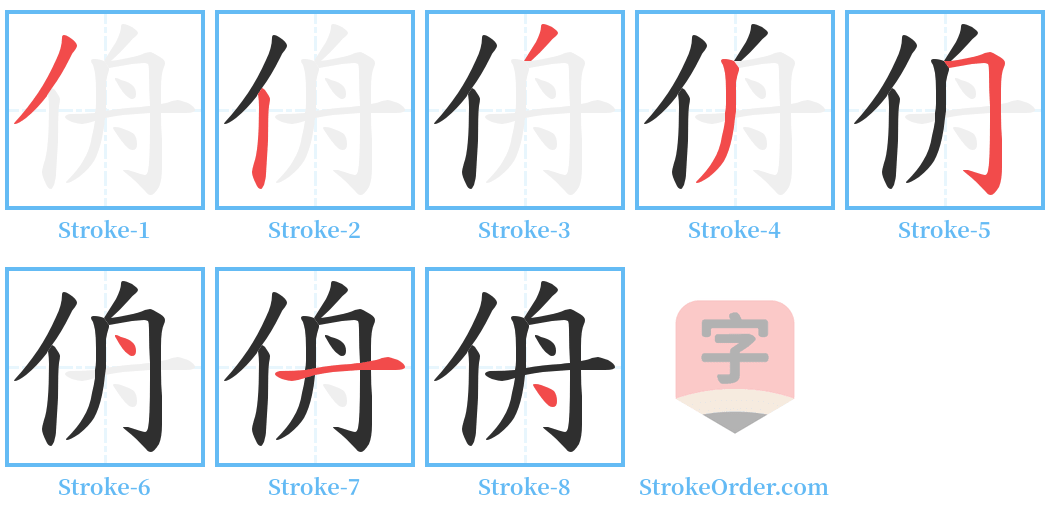侜 Stroke Order
Animated Stroke Order of 侜

Stroke Order Diagrams for 侜

Information of 侜
Pinyin
zhōu
Radical
亻
Strokes
8 strokes
Usage
★★
Definition
侜 (zhōu)
1. To obstruct or block.
2. To deceive.
侜 (zhōu)
1. To obstruct or block.
2. To deceive: 侜张 (deceive and mislead).
侜 (zhōu)
[Verb]
1. To deceive (tell a lie).
【Note】
1. From "Shuōwén Jiězì": 侜 means to have obstruction or blockage. It is composed of the "person" radical and sounds like "舟". The character can also be written as 倜.
2. In "Shī · Chénfēng · Fáng yǒu què cháo": Who deceives me beautifully? It is quoted: 侜张 (deceive), a term that means to tell lies. "Éryǎ" explains that 侜张 means to deceive; some texts refer to it as 倜, indicating a literary synonym. "Shū · Wúyì," and 诪张 as illusion, are similarly contextualized. In "Lunyu," Zhu Zhang and Liu Xiang are referenced differently; some render it as 侏张. Note that harmony with the light and mingling with dust embodies the spirit of loose worldly ambitions, as Confucius mentioned, lowering one's ambitions and humbling oneself, which Mencius referred to as disrespectfulness.
【Example】
- Again, as in: 侜张为幻 (to deceitfully fabricate).